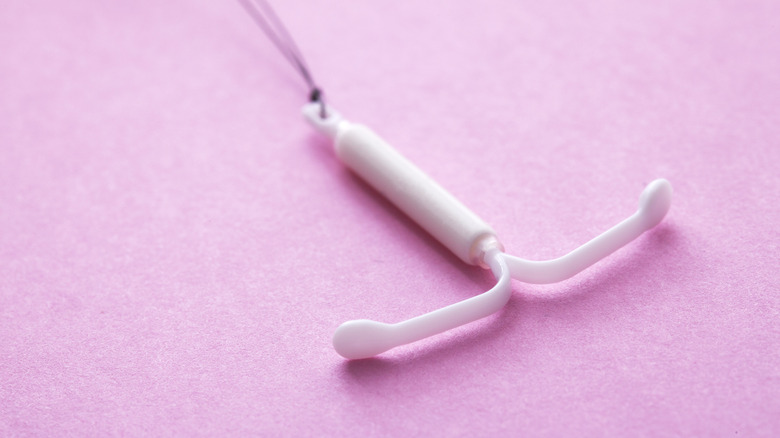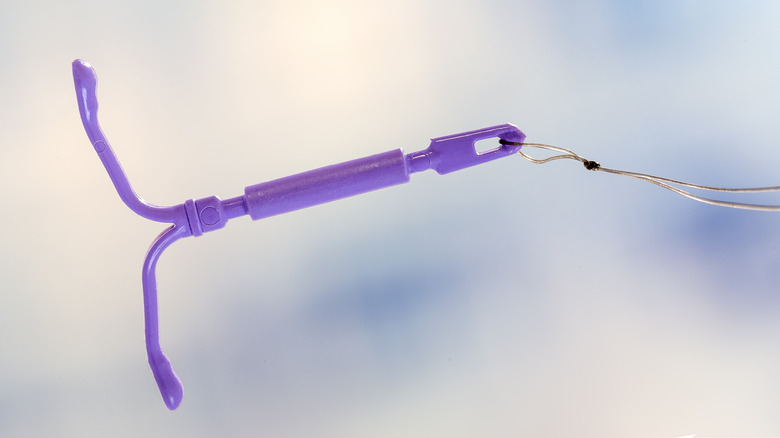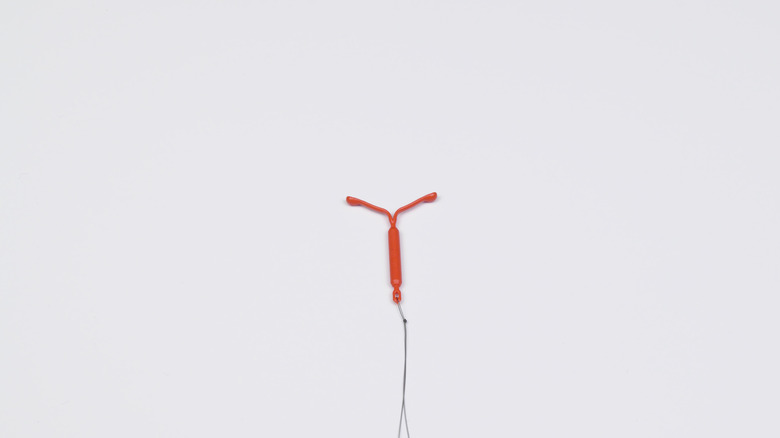Liletta Vs. Mirena: Which Birth Control Is Right For You?
There are many types of birth control out there, but one of the most popular — not to mention one of the most effective — is an intrauterine device (IUD), sometimes referred to as intrauterine contraception (IUC).
Per Planned Parenthood, IUDs are made of a soft, T-shaped piece of plastic and are inserted directly into the uterus where they can stay in place for years at a time (how many years depends on the type), affording you long-term protection against pregnancy with minimal effort. They can be inserted quite easily by a medical professional and can be removed just as easily.
There are currently five FDA-approved IUD brands on the market in the U.S., and they all work by preventing sperm from reaching the egg. Of these five brands, two of the most popular are Liletta and Mirena. If you're having trouble deciding which of these IUD brands is right for you, here is some information that might help.
Both IUDs release the hormone levonorgestrel
According to the Liletta website, this IUD can remain in your uterus for up to six years, where it will release a hormone called levonorgestrel — a hormone found in many birth control pills. Mirena, on the other hand, can be used for up to seven years, per its website. Other than that extra year, though, there isn't a huge difference between the two brands, as Mirena also releases levonorgestrel. Both can result in lighter periods — or even safely stop them completely. Both Liletta and Mirena are also free of estrogen, which is ideal for breastfeeding parents as estrogen can lower your milk supply (via Healthline).
Dr. Jessica Morse wrote for Bedsider Providers that, functionally, the two IUDs aren't that different. "Both are excellent at preventing pregnancy, and both are likely to cause noticeable decreases in menstrual bleeding or even complete cessation," she said.
Morse added that there is one consideration that may influence you choosing Liletta over Mirena, though.
Depending on insurance, there might be price differences between Liletta and Mirena
As Dr. Jessica Morse described at Bedsider Providers, Liletta was deliberately created as "an affordable IUD," even for "those without health insurance and those with high deductibles." She wrote that those behind the IUD intended that a patient will never have to pay more than $150, which is quite affordable considering that Planned Parenthood notes that an IUD can cost as much as $1,300.
While how much you end up paying for an IUD will, of course, vary greatly based on your insurance plan, the Liletta website notes that, depending on your coverage, you could get a Liletta IUD with no out-of-pocket costs. They also offer a Patient Savings Program for those with commercial health insurance with an out-of-pocket cost over $100.
The Mirena website says that the cost of the device without insurance is $999.28, but notes that most patients have most of that hefty price tag covered by their insurance. To know how much either device will cost you, check with your insurance and your healthcare provider.


